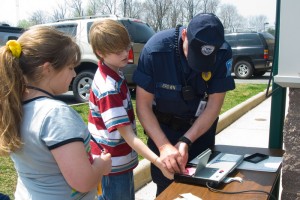The sixth and final component of the Protect Innocence Initiative analyzes state law regarding law enforcement and criminal justice tools for investigation and prosecution. This final category includes recommendations for states to adapt training for law enforcement, mandate the reporting of missing children and permit the use of specific technology or techniques in the investigation of domestic minor sex trafficking including wiretapping, single party consent, decoy officers, and the Internet. These tools are vital in the investigation and prosecution of domestic minor sex trafficking.
John Haas is a 59-year-old Air Force retiree and frequent john who allegedly fulfilled a traffickers request to “break in” a girl he said was so young she could be his granddaughter. The child was 15 years old. Haas faced 15 years to life in prison; however, to avoid forcing the child to testify in court, Haas was allowed to plead and received a reduced sentence of two to five years in prison.
 Stories like this are far too common because adequate criminal investigation and prosecution techniques may not be permitted under state law. However, some organizations have taken measures to assist in the search for missing children. Child Safety Network, Klaas Kids Foundation, and the National Center for Missing and Exploited Children all emphasize the need for parents to have an identification card for their child in case the child goes missing. These cards can be given to law enforcement and entered into the database to assist in finding the minor.
Stories like this are far too common because adequate criminal investigation and prosecution techniques may not be permitted under state law. However, some organizations have taken measures to assist in the search for missing children. Child Safety Network, Klaas Kids Foundation, and the National Center for Missing and Exploited Children all emphasize the need for parents to have an identification card for their child in case the child goes missing. These cards can be given to law enforcement and entered into the database to assist in finding the minor.
The final PII component, law enforcement and criminal justice tools for investigation and prosecution, is another crucial component in combating domestic minor sex trafficking in every state. Our desire is to strengthen the fabric of state laws by creating consistent policies that require DMST training for law enforcement, help aid law enforcement in investigations of DMST, and ensure that all missing children are reported including rescued DMST victims.






